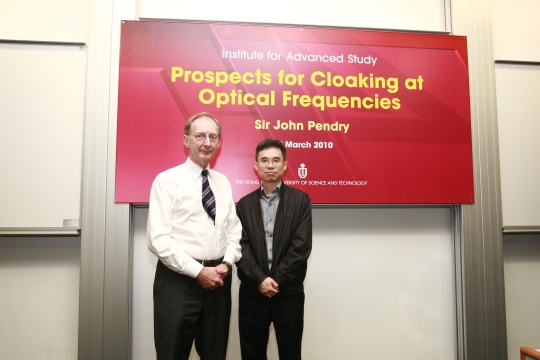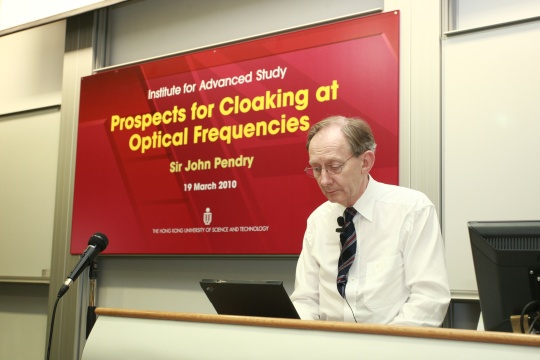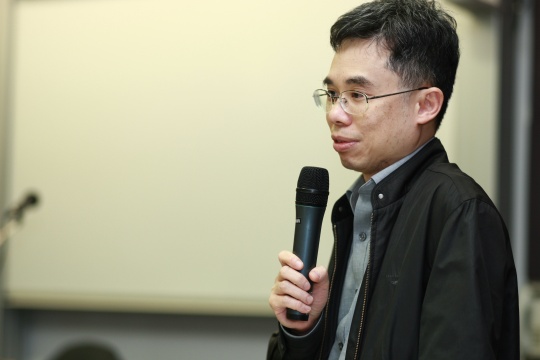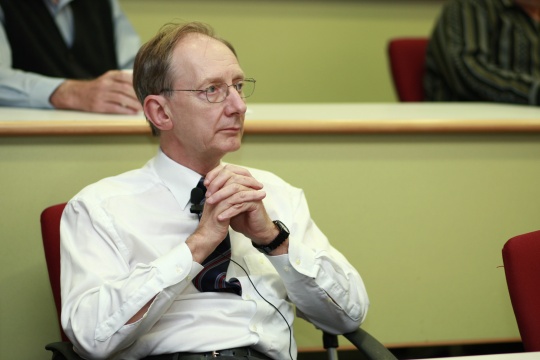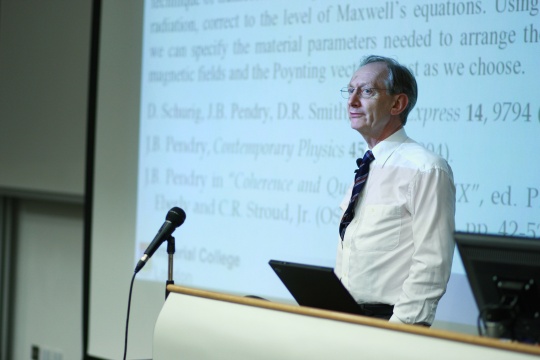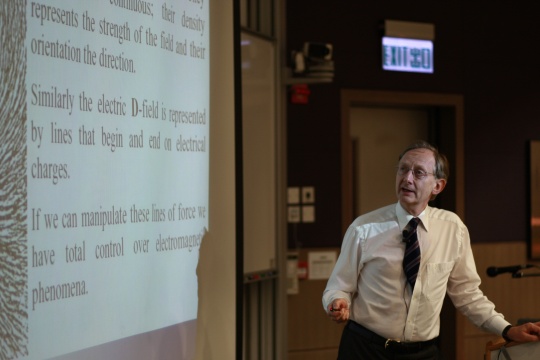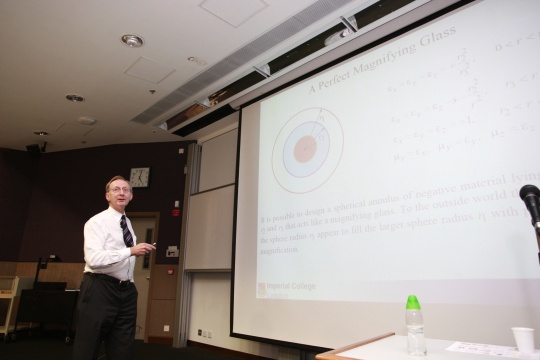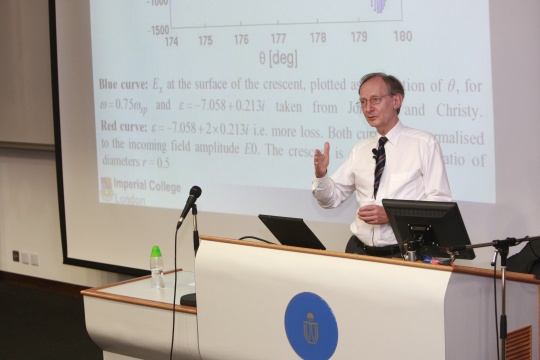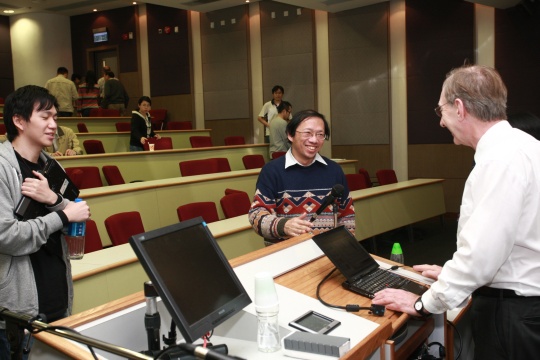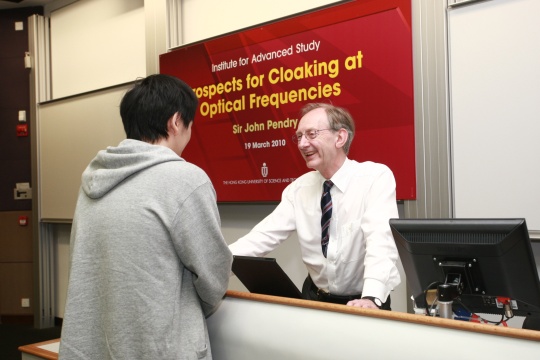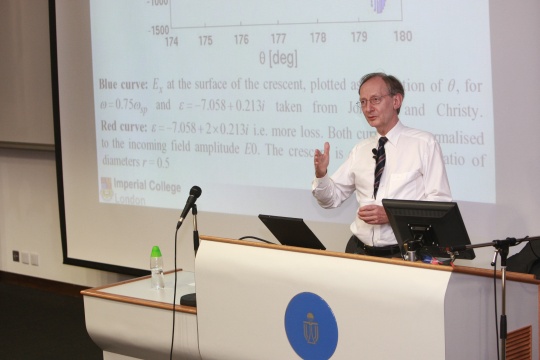Prospects for Cloaking at Optical Frequencies
Abstract
Transformation optics has shown how to design a cloak of invisibility, but putting the theoretical designs into practice requires some skillful employment of the new metamaterials. Cloaks have been successfully demonstrated at radar frequencies be the material requirements for optical cloaks are very severe. New designs for cloaks have relaxed these requirements somewhat and cloaks operating at communications frequencies in the near infra red have already been built.
About the Speaker
Sir John Pendry is a condensed matter theorist known for his research into refractive indexes and creation of the first practical "Invisibility Cloak". He began his career in the Cavendish Laboratory, Cambridge, has and worked at the Blackett Laboratory, Imperial College London, since 1981. He has been Dean of the Royal College of Science (1993-1996), Head of Department at Imperial College (1998-2001), and subsequently Principal of the Faculty of Physical Sciences (2001- 2002). Elected a Fellow of the Royal Society in 1984, he has been Member of Council from 1992-1994, and Editor of the Royal Society Proceedings A from 1996-2002. For the Institute of Physics, since 2007 he has been Member of Council, Chairman of Institute of Physics Publishing and Vice-President for Publishing. He has received honours and awards recognizing his contributions, culminating in his knighthood for services to science in 2004, and the Royal Medal of the Royal Society in 2006.
Sir John has worked extensively on electronic and structural properties of surfaces developing the theory of low energy diffraction and of electronic surface states, and transport in disordered systems where he produced a complete theory of the statistics of transport in one dimensional systems. In 1992 Sir John turned his attention to photonic materials and developed some of the first computer codes capable of handling these novel materials. This interest led to his present research, the subject of his lecture, which concerns the remarkable electromagnetic properties of materials where the normal response to electromagnetic fields is reversed leading to negative values for the refractive index.

